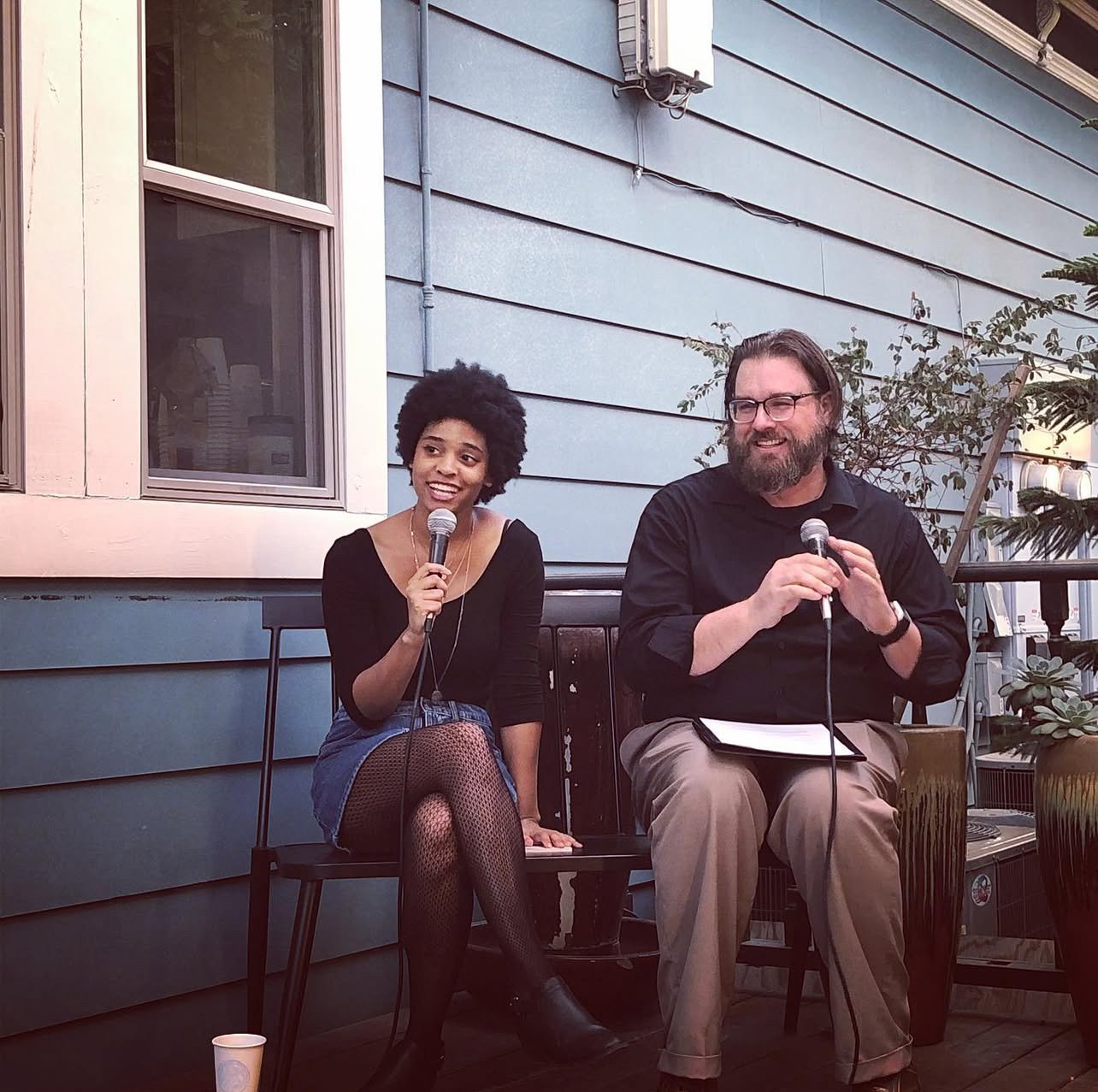The Remembering Room
Yesterday, a good friend of mine, Kathryn Ross, finally got to announce some big news she’s had to sit on for a long time. Her story, “The Forgetting Room,” has been selected—in a perfect stroke of fate by Nnedi Okorafor—to be included in the 2025 edition of The Best American Science Fiction and Fantasy.
This selection a huge moment for Kathryn that’s so well deserved. It’s also the product of a lot of effort over a long time, as most stories in writing success tend to be.
Eleven years ago, I returned to my alma mater to teach creative writing. No one was more surprised by that professional development than me (except maybe the professors who’d had me as an undergrad and then had to refer to me as a colleague). That first year, I had the chance to work with an unusually strong group of writers at the tail end of their undergraduate studies.
In essence, I was spoiled. They were and are a gifted bunch whose work has gone on to inspire me back to my own words in the decade since they sat in the desks of my classroom.
One of those writers I mentored is Kathryn, a person I now count as a close friend and trusted reader (as evidenced by the fact that she is one of only four people who have read my WiP). She’s an accomplished author of nonfiction (see: Black Was Not a Label) and poetry (see: Count It All Loss) as well as an editor, coach, and ghost writer. She can, quite literally, do it all.
But when I met her, she was all about science fiction. I remember one of our first conversations when I asked who her favorite author was. Quiet and thoughtful, as usual, there was uncharacteristically very little of the characteristic pause I’ve come to recognize in most of her responses to my questions over the years.
“Ray Bradbury,” she said immediately. “His stories are so good.”
I nodded in agreement even as I’m sure I shot a surprised eyebrow. Bradbury is indeed phenomenal. But he was definitely not in vogue with most of the young writers I worked with during that period. I was intrigued.
Later, in my advanced creative writing course, Kathryn brought in one of her own science fiction short stories for workshop. I remember thinking of Octavia Butler. Of Jamaica Kincaid. And, yes, of Bradbury. Her words aren’t ornamented, they’re precise. Her stories aren’t bombastic, they’re subtly moving. Her themes aren’t sleeve-worn, they’re tailored into the cuffs and inseams of her characters’ choices.
At the time, I remember being encouraging. Pushing some sections to be tighter. Asking more of a couple elements. Mostly finishing strokes, no demands to paint over what was already on the canvas. I honestly don’t remember if that story ever got published (though I feel like it must have been at some point).
Interestingly, Kathryn’s attention turned to nonfiction in the years after she finished her undergraduate studies. First essays, then a memoir I was gifted the chance to edit for her. Then producing a collection of poetry. Then building a business as a freelancer. But always, her first love stayed in the picture.
Kathryn and me at the launch of her memoir, Black Was Not a Label. Editing her book still ranks as one of my favorite experiences working with writers. Acting as MC for the launch? Yeah, that was pretty great too.
During the pandemic, I watched a live-streamed address Kathryn gave through the Bradbury Center, a literal life goal being checked off her list, and wondered if the experience had her thinking about her fiction again. Being the nosy former teacher I am, I asked her about it the next time we grabbed coffee. She said yes, but life was chaotic (for us all) and she was busy.
I may have “encouraged” her to find the time. What can I say? Even writers with her level of talent need to be reminded the rest of us really do want the stories that talent can unearth. And who am I if not an irritating voice of reminder to the talented people in my life?
And now, a big, broad audience is about to be introduced to Kathryn’s fiction. And well they should be, because of her talent, for sure, but also because she has worked so hard to let her stories insist on being taken seriously. I hope this leads to more opportunities for people to read her stories, to contend softly with the hard world we live in as her characters do theirs.
Mostly, though, I’ll celebrate every time a good person gets their due respect. Pre-order the collection and check out “The Forgetting Room.” Maybe it will inspire you to write your own stories. Or read more good ones.
Either way, remember the name Kathryn Ross. You’ll be hearing from her again.

